Student Success & The Northern Experience
Our Animal Grooming program gives you hands-on experience and opportunities to work with live animals to practice your grooming skills. Under the guidance of experienced instructors, you’ll gain a solid base of technical skills and knowledge in animal grooming.
This program may be taken concurrently with our one-year Veterinary Assistant certificate program.
Does this program sound like a good fit for you?
Connect with us to learn more.
Course Information
Semester 1
This course will educate students on how to handle and care for various companion animals, both large and small. This course will also prepare the student to work proficiently in a grooming facility. The student will learn and practise proper bathing procedures. The student will also be able to recognize and care for skin and coat conditions and will learn proper ear and nail care. They will also learn how to communicate effectively with their clients.
42 Hours
This course will deal with how to groom various companion animals, both large and small. The course will go into detail on how to handle a cat during the grooming process as well as why cats are groomed. Styles such as the lion cut will be taught, nail trimming, ear cleaning and bathing procedures. This course will also prepare the student to function properly in a grooming facility. All areas of care will be discussed and practiced; these will include bathing, nail trimming, scissor cuts and conditioning of the coat.
84 Hours
The course is designed to help students gain insights and skills to promote personal and professional development. Students will develop an understanding of how they manage their lives and incorporate skills to maximize their strengths and reduce the impact of less effective techniques. Students will learn about resources that are available to them and the intelligence of accessing additional support when needed. The content of this course provides students with the opportunity to lay a foundation for lifelong learning; learn to communicate effectively, build and value productive and satisfying diverse relationships and prepare for the challenges and rewards that make life meaningful.
42 Hours
Animal care providers often handle animals with behaviour problems. They must know what advice to give and when to refer the problem to the veterinarian. The animal care provider must also know the procedure involved in referral to a behavioural specialist and/or obedience trainer.
28 Hours
This one semester course is designed for the Animal Groomer, Veterinary Assistant and the Veterinary Technician and their role in the daily operation of a veterinary practice. The course will include sections on oral, written and electronic communication, team work and group practice and customer service. There will also be components on the human animal bond, grief support, compassion fatigue and ethics in the veterinary practice. This course will enable the students to practice the skills required for effective work in client relations.
42 Hours
This course will outline the fundamentals of animal restraint and the factors that influence behaviour. Handling, restraining, feeding, and analyzing of cats, dogs and lab animals will be emphasized. Proper forms of animal approach, handling, restraint, and release will be demonstrated and practiced by the student. All classes will start with a lecture and/or demonstration on how to perform the procedure, followed by a lab of applying that knowledge.
28 Hours
This course will prepare the student to function in a veterinary environment. Students will provide care for the colony animals housed at Northern College. The use of Standard Operating Procedures will assist the student. The Veterinary Science facility simulates the professional environment and enables the students to learn the skills necessary to function as a productive team member.
14 Hours
This course will educate students on how to handle and care for various companion animals, both large and small. This course will also prepare the student to work proficiently in a grooming facility. The student will learn and practise proper bathing procedures. The student will also be able to recognize and care for skin and coat conditions and will learn proper ear and nail care. They will also learn how to communicate effectively with their clients.
42 Hours
This course will deal with how to groom various companion animals, both large and small. The course will go into detail on how to handle a cat during the grooming process as well as why cats are groomed. Styles such as the lion cut will be taught, nail trimming, ear cleaning and bathing procedures. This course will also prepare the student to function properly in a grooming facility. All areas of care will be discussed and practiced; these will include bathing, nail trimming, scissor cuts and conditioning of the coat.
84 Hours
The course is designed to help students gain insights and skills to promote personal and professional development. Students will develop an understanding of how they manage their lives and incorporate skills to maximize their strengths and reduce the impact of less effective techniques. Students will learn about resources that are available to them and the intelligence of accessing additional support when needed. The content of this course provides students with the opportunity to lay a foundation for lifelong learning; learn to communicate effectively, build and value productive and satisfying diverse relationships and prepare for the challenges and rewards that make life meaningful.
42 Hours
Animal care providers often handle animals with behaviour problems. They must know what advice to give and when to refer the problem to the veterinarian. The animal care provider must also know the procedure involved in referral to a behavioural specialist and/or obedience trainer.
28 Hours
This one semester course is designed for the Animal Groomer, Veterinary Assistant and the Veterinary Technician and their role in the daily operation of a veterinary practice. The course will include sections on oral, written and electronic communication, team work and group practice and customer service. There will also be components on the human animal bond, grief support, compassion fatigue and ethics in the veterinary practice. This course will enable the students to practice the skills required for effective work in client relations.
42 Hours
This course will outline the fundamentals of animal restraint and the factors that influence behaviour. Handling, restraining, feeding, and analyzing of cats, dogs and lab animals will be emphasized. Proper forms of animal approach, handling, restraint, and release will be demonstrated and practiced by the student. All classes will start with a lecture and/or demonstration on how to perform the procedure, followed by a lab of applying that knowledge.
28 Hours
This course will prepare the student to function in a veterinary environment. Students will provide care for the colony animals housed at Northern College. The use of Standard Operating Procedures will assist the student. The Veterinary Science facility simulates the professional environment and enables the students to learn the skills necessary to function as a productive team member.
14 Hours
Semester 2
This course will help the students to prepare for their testing towards their Master Stylist Certification. Three groups of dogs will be covered, including the Sporting, Non-Sporting and the Terrier group. They will learn how to identify each dog from the assigned group as well as learn the characteristics of each and their grooming requirements. A total of 89 breeds will be covered.
28 Hours
This course will deal with how to groom various companion animals, both large and small. The course will go into detail on how to handle a cat during the grooming process as well as why cats are groomed. Styles such as the lion cut will be taught, nail trimming, ear cleaning and bathing procedures. This course will also prepare the student to function properly in a grooming facility, and how to interact with customers. All areas of care will be discussed and practiced; these will include bathing, nail trimming, scissor cuts and conditioning of the coat. The care of the equipment will also be discussed as well as products on the market.
70 Hours
This course will introduce students to the fundamental approach to starting and managing a small business in Canada. An examination of what is necessary to start a small business will encompass strategic areas such as goal setting, organizational set-up, financial planning, accounting, marketing, human resources and legal issues.
42 Hours
Improving your knowledge and understanding of the history of the Indigenous peoples of what we now call Canada is an important step to enable Indigenous and non-Indigenous people, organizations, and communities to work together more respectfully. Throughout this course you will have the opportunity to learn, discuss and reflect about many topics that are relevant in the learning journey towards reconciliation.
42 Hours
This course covers the basic concepts of nutrition and provides students with sufficient understanding to advise clients on the nutritional needs of large and small animals at various life stages. While the major focus of the course if on feeding the healthy animal, the dietary needs of dogs and cats with specific organ diseases are also covered. Students are introduced to common dietary toxicities and deficiencies encountered in small animal companion medicine.
28 Hours
This course will outline the fundamentals of basic animal procedures that may occur in a small animal clinic setting. Handling and restraining will be emphasized during basic procedures such as; bandaging, emergency triage, proper sample collection and handling, equipment uses during emergency situations. All classes will start with a lecture and/or demonstration on how to perform the procedure, followed by a lab of applying that knowledge.
28 Hours
This course will encompass all aspects of grooming procedures for the companion animal. It will prepare the student to recognise and care for various skin disorders. All areas of concern will be discussed and practised in providing a safe environment for the groomer, workplace and the companion animal.
42 Hours
This course will prepare the student to function in a veterinary environment. Students will provide care for the colony animals housed at Northern College. The use of Standard Operating Procedures will assist the student. The Veterinary Science facility simulates the professional environment and enables the students to learn the skills necessary to function as a productive team member.
14 Hours
This course will give the student practical skills on specialized veterinary software packages such as Pulse (a “cloud-based” software-as-a-service solution you can access from anywhere via a web browser), and AVImark (a popular software used in veterinary office clinics which is installed on our on-campus computer lab workstations). Students will learn to set up files for new clients and/or new patients, bill clients for services and products, print appropriate certificates and prescription labels, as well as practice accepting payments.
28 Hours
This course will help the students to prepare for their testing towards their Master Stylist Certification. Three groups of dogs will be covered, including the Sporting, Non-Sporting and the Terrier group. They will learn how to identify each dog from the assigned group as well as learn the characteristics of each and their grooming requirements. A total of 89 breeds will be covered.
28 Hours
This course will deal with how to groom various companion animals, both large and small. The course will go into detail on how to handle a cat during the grooming process as well as why cats are groomed. Styles such as the lion cut will be taught, nail trimming, ear cleaning and bathing procedures. This course will also prepare the student to function properly in a grooming facility, and how to interact with customers. All areas of care will be discussed and practiced; these will include bathing, nail trimming, scissor cuts and conditioning of the coat. The care of the equipment will also be discussed as well as products on the market.
70 Hours
This course will introduce students to the fundamental approach to starting and managing a small business in Canada. An examination of what is necessary to start a small business will encompass strategic areas such as goal setting, organizational set-up, financial planning, accounting, marketing, human resources and legal issues.
42 Hours
Improving your knowledge and understanding of the history of the Indigenous peoples of what we now call Canada is an important step to enable Indigenous and non-Indigenous people, organizations, and communities to work together more respectfully. Throughout this course you will have the opportunity to learn, discuss and reflect about many topics that are relevant in the learning journey towards reconciliation.
42 Hours
This course covers the basic concepts of nutrition and provides students with sufficient understanding to advise clients on the nutritional needs of large and small animals at various life stages. While the major focus of the course if on feeding the healthy animal, the dietary needs of dogs and cats with specific organ diseases are also covered. Students are introduced to common dietary toxicities and deficiencies encountered in small animal companion medicine.
28 Hours
This course will outline the fundamentals of basic animal procedures that may occur in a small animal clinic setting. Handling and restraining will be emphasized during basic procedures such as; bandaging, emergency triage, proper sample collection and handling, equipment uses during emergency situations. All classes will start with a lecture and/or demonstration on how to perform the procedure, followed by a lab of applying that knowledge.
28 Hours
This course will encompass all aspects of grooming procedures for the companion animal. It will prepare the student to recognise and care for various skin disorders. All areas of concern will be discussed and practised in providing a safe environment for the groomer, workplace and the companion animal.
42 Hours
This course will prepare the student to function in a veterinary environment. Students will provide care for the colony animals housed at Northern College. The use of Standard Operating Procedures will assist the student. The Veterinary Science facility simulates the professional environment and enables the students to learn the skills necessary to function as a productive team member.
14 Hours
This course will give the student practical skills on specialized veterinary software packages such as Pulse (a “cloud-based” software-as-a-service solution you can access from anywhere via a web browser), and AVImark (a popular software used in veterinary office clinics which is installed on our on-campus computer lab workstations). Students will learn to set up files for new clients and/or new patients, bill clients for services and products, print appropriate certificates and prescription labels, as well as practice accepting payments.
28 Hours
Career Ready Graduates
Articulation Agreements
A number of articulation agreements have been negotiated with universities and other institutions across Canada, North America and internationally. These agreements are assessed, revised and updated on a regular basis. Please contact the program coordinator for specific details if you are interested in pursuing such an option.
Canadian Field of Study/CIP Code List
CIP Code: 01.0504
International students: check the Canadian Field of Study/CIP Code List to see if your program is eligible for the Post-Graduation Work Permit (PGWP).
Career Opportunities
Graduates may pursue careers in a variety of settings, including veterinary clinics and hospitals, pet grooming salons, and retail pet stores.
They can also choose to start their own successful animal grooming business, applying their skills and passion to build a rewarding career in the animal care industry.
Explore labour market information for related careers and employment trend data from the Government of Canada Job Bank.
- Provide for animals’ basic needs to ensure compliance with health and safety standards.
- Perform safe animal handling to ensure no harm to the animal or the groomer.
- Provide clients with standard information about routine care of dog and cat hair coats and nails to recommend ongoing care at home.
- Evaluate pets overall health, behaviour, and relevant medical history to determine the desired grooming needs with the client.
- Identify classes of dogs and common breeds of dogs and cats to select grooming techniques and style.
- Identify common zoonotic diseases of dogs and cats to promote biosecurity, health, and safety.
- Collect animal identification details to maintain accurate records.
- Bath, clip, and groom cats and dogs according to acceptable grooming standards.
- Recognize and describe behavioural signs of animals to determine the animal’s emotional state.
- Perform routine office procedures including bookkeeping records to meet organizational requirements and legislative guidelines.
Work Integrated Learning Opportunities
In semester two, each week students complete the entire grooming appointment, from intake to discharge. Under the supervision of a grooming professional, students learn how to interact confidently and professionally with clients and how to assess client needs. Students receive valuable feedback from clients to identify areas of strength and areas needing improvement.
Graduate with a Double Certificate
This program may be taken concurrently with the Veterinary Assistant program. The student would then graduate with a double certificate. Please contact the Program Assistant at 705-672-3376 ext. 8854 or at vetsciences@northern.on.ca for more information.
Accreditation
The Veterinary Science Centre and our Veterinary Technician program are accredited by:
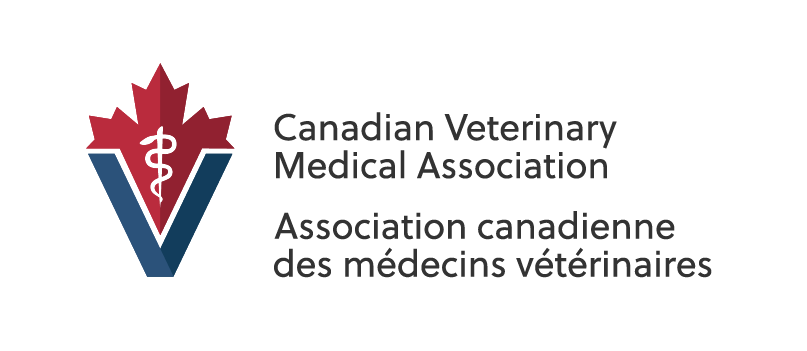
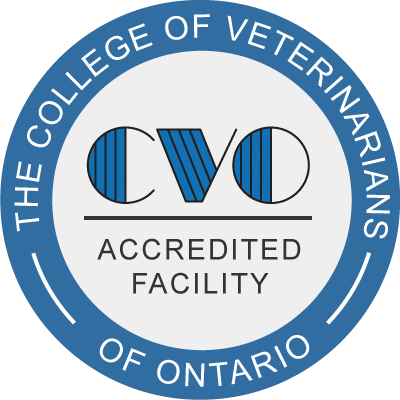
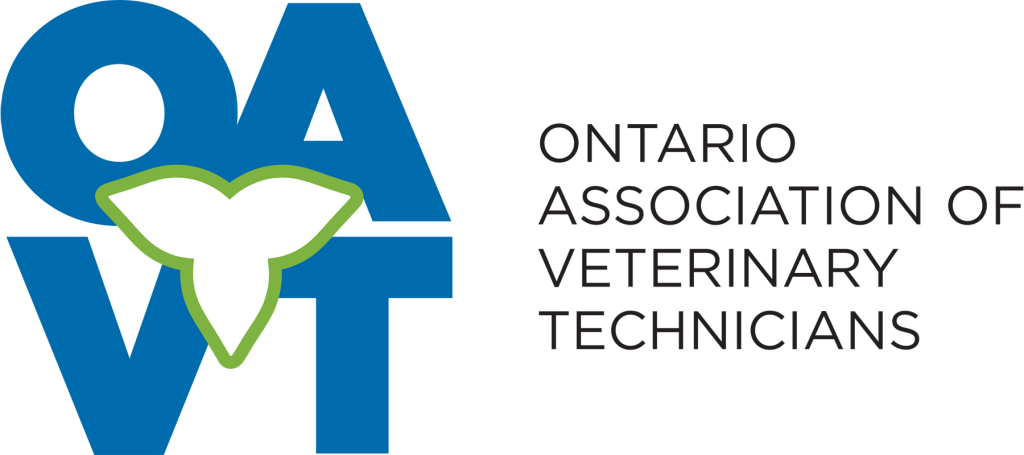
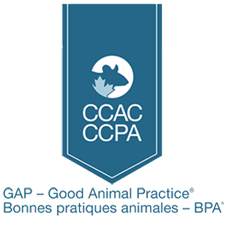
Admissions Information & Requirements
Admission Requirements
- Ontario Secondary School Diploma (OSSD) or equivalent
- Grade 12 English (C, U, or E) or equivalent
- Proficiency in word processing recommended
Graduates of this program who wish to apply to the Veterinary Technician/Veterinary Technology program must have – in addition to the usual requirements for direct entry from high school – a 3.0 GPA upon graduation from Veterinary Assistant or Animal Grooming programs. Applicants will be assessed according to their highest academic achievement in their program.
Academic prerequisites for this program may be obtained free of charge through Academic Upgrading.
Applicants who do not have a high school diploma or equivalent and will have reached the age of 19 years on or before the start of the program must undergo academic testing and may be required to complete Prior Learning Assessment & Recognition (PLAR) process to demonstrate equivalency of admission requirements prior to admission into a program.
For more details, please contact the Admissions Office at 705-235-7222 or admissions@northern.on.ca.
Additional Requirements for International Students
In addition to the admission requirements, international students must have proof of English Proficiency and meet the requirements below.
1. Proof of Senior High School Diploma/Certificate.
2. English Proficiency (we will require one of the following):
- IELTS Academic International English Language Testing System: minimum overall score of 6.0 must be achieved with no individual band score under 5.5
- TOEFL (Test of English as a Foreign Language) – Internet Based Test (iBT) overall minimum score of 79.
- PTE (Pearson Test of English) Academic – Graduate Diploma: 58+.
- Duolingo: 105+
If your country of citizenship has English as its official language, we may accept alternate proof of English Proficiency.
All educational documents must be submitted in English and will be dependent on the country of citizenship.
For more information, please contact admissions@northern.on.ca.
Program Specific Requirements & Additional Information
Rabies vaccine series or titre prior to start of program (at student’s expense). The rabies vaccinations/titre should be started in May or June, and proof is due by August 1.
Students must purchase a basic grooming kit detailed in the program requirements.
Tuition, Fees & Payments
The tuition and fees information is typically updated yearly for the upcoming Academic Year in May. The amounts are for the full academic year.
Amounts may be based on last years tuition and fees and are subject to change.
If you are a current student, please refer to your Student Account or see a Student Services Clerk for the most up-to-date information.
Tuition
Domestic: $2,720.56
International: $15,257.86
Ancillary Fees
Ancillary fees vary by campus and support aspects of your experience as a Northern College student, such as Student Associations, Athletic Facilities, and Health Benefits.Ancillary fees are paid in full for the entire academic year in the first semester.
Please see Detailed Ancillary Fees for more information.
| Ancillary Fees by Campus (2025-26) | Domestic | International |
| Haileybury (HL) | $976.50 | $1,609.00 |
Program Specific Fees
Model Dogs: $44.00Software: $82.00
Find Your True North.
At Northern College, you’re a part of a community.
From your teachers to support staff and administrators, we are all here to help you get an education and make some lasting connections along the way.
Your success is incredibly important to you, so we provide student supports to help you achieve your goals. From study assistance and accessibility services to mental health supports and financial aid, we’ve got you covered.
Each of Northern’s campuses boasts exercise facilities, a gym, cafeteria, study areas and a library – places that you can go to help keep you focused as you work your way through your studies. The communities we call home are incredible places, filled with amazing people and things to do.
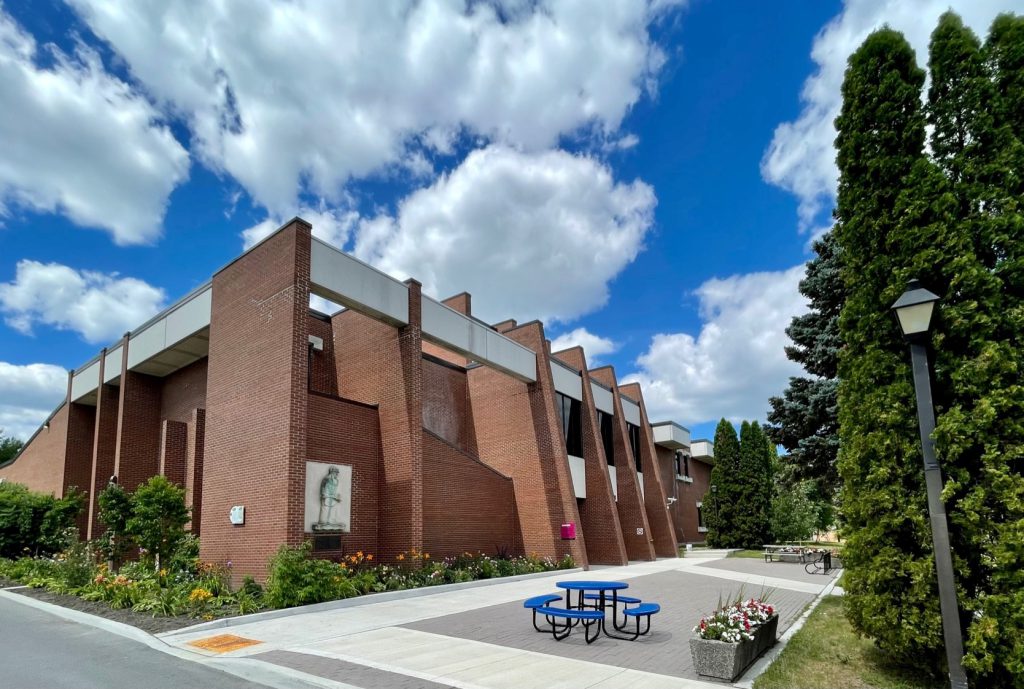
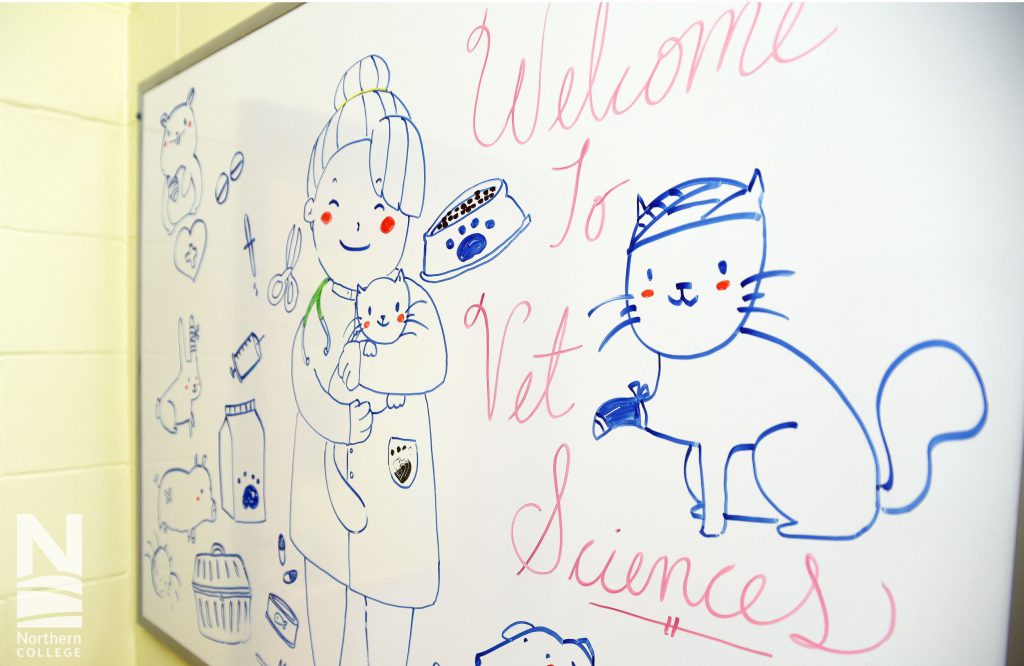
Does Northern College sound like a good fit for you?
Here’s how to take your first steps on your new exciting and rewarding career path.


